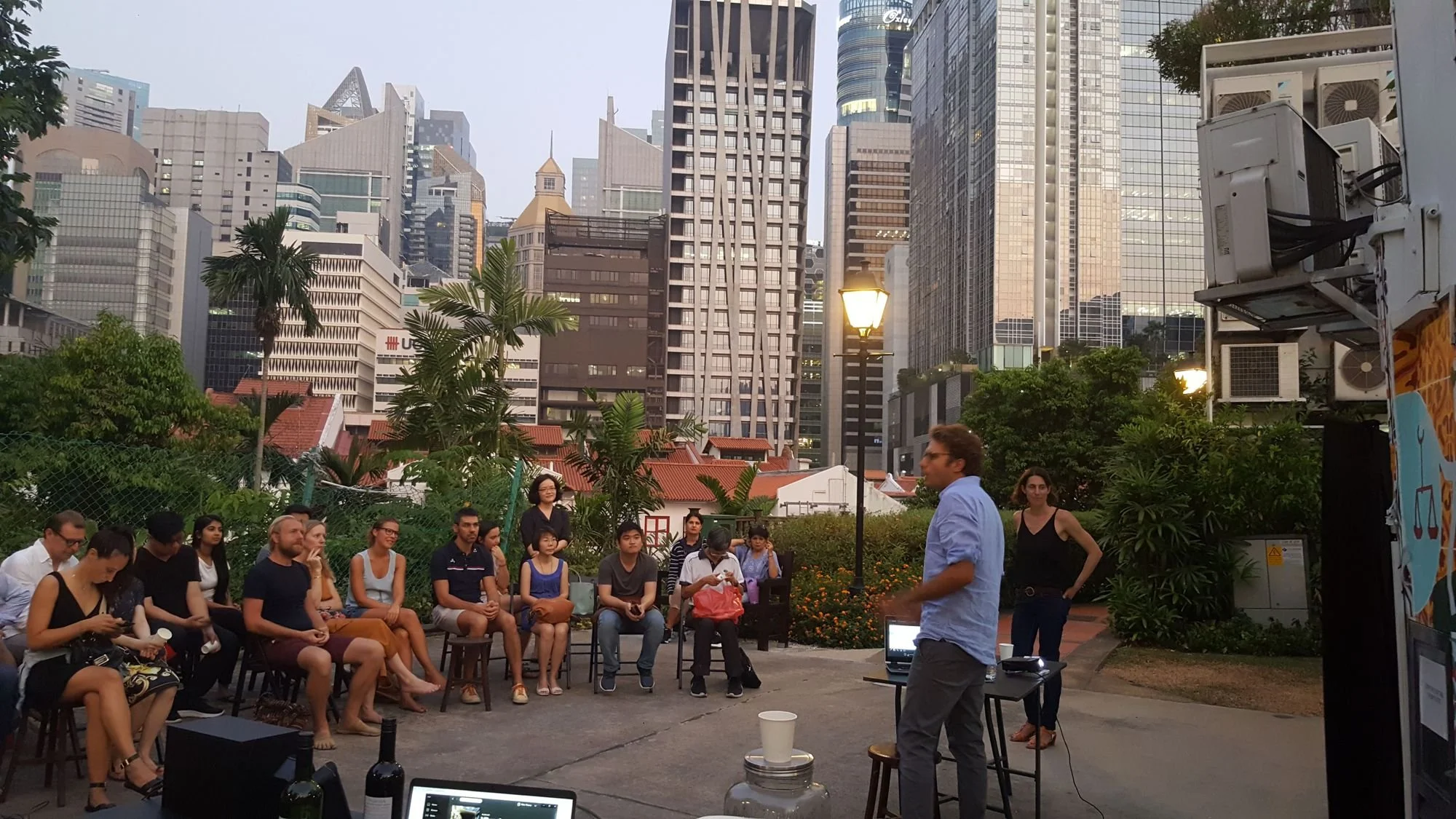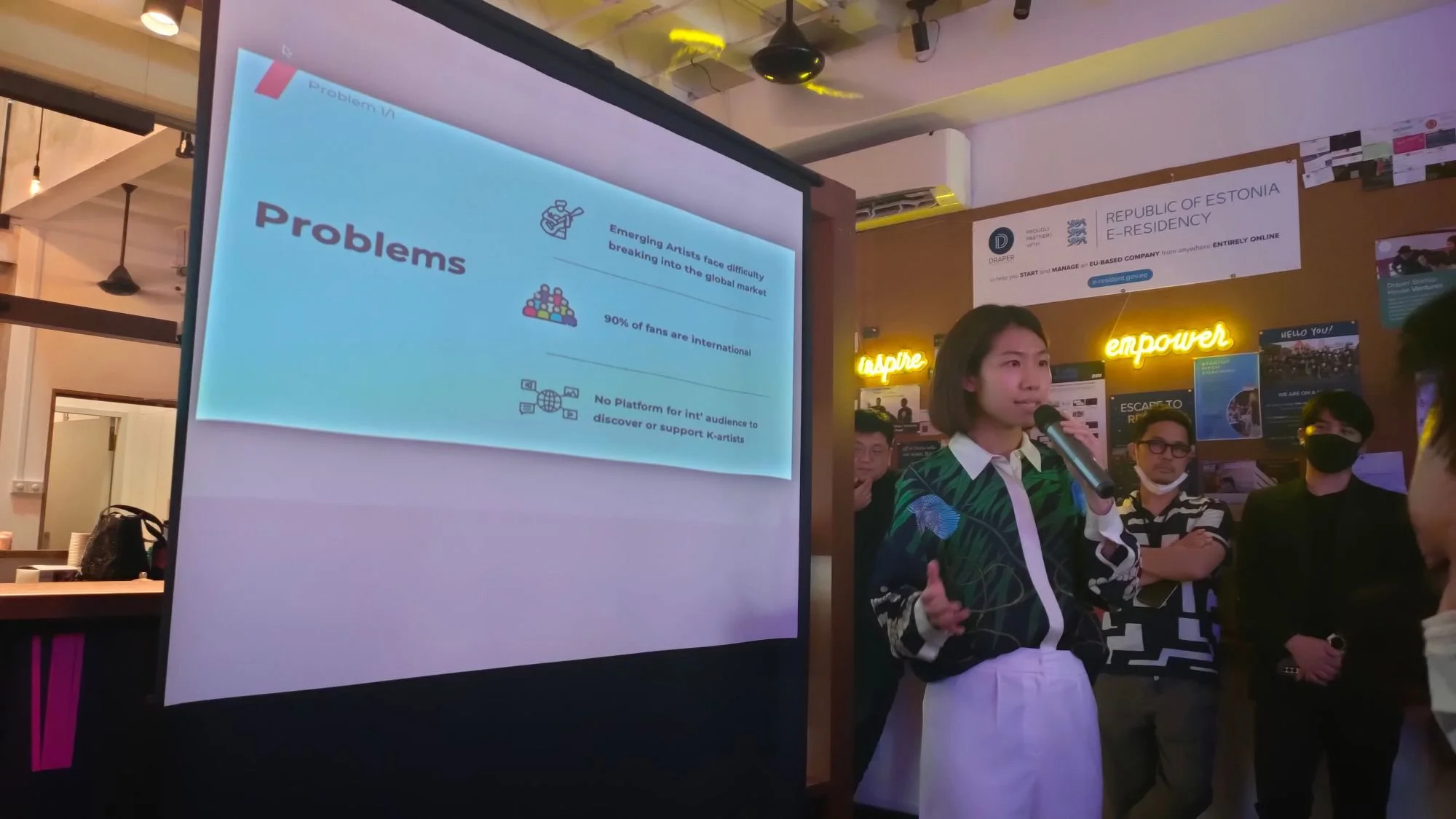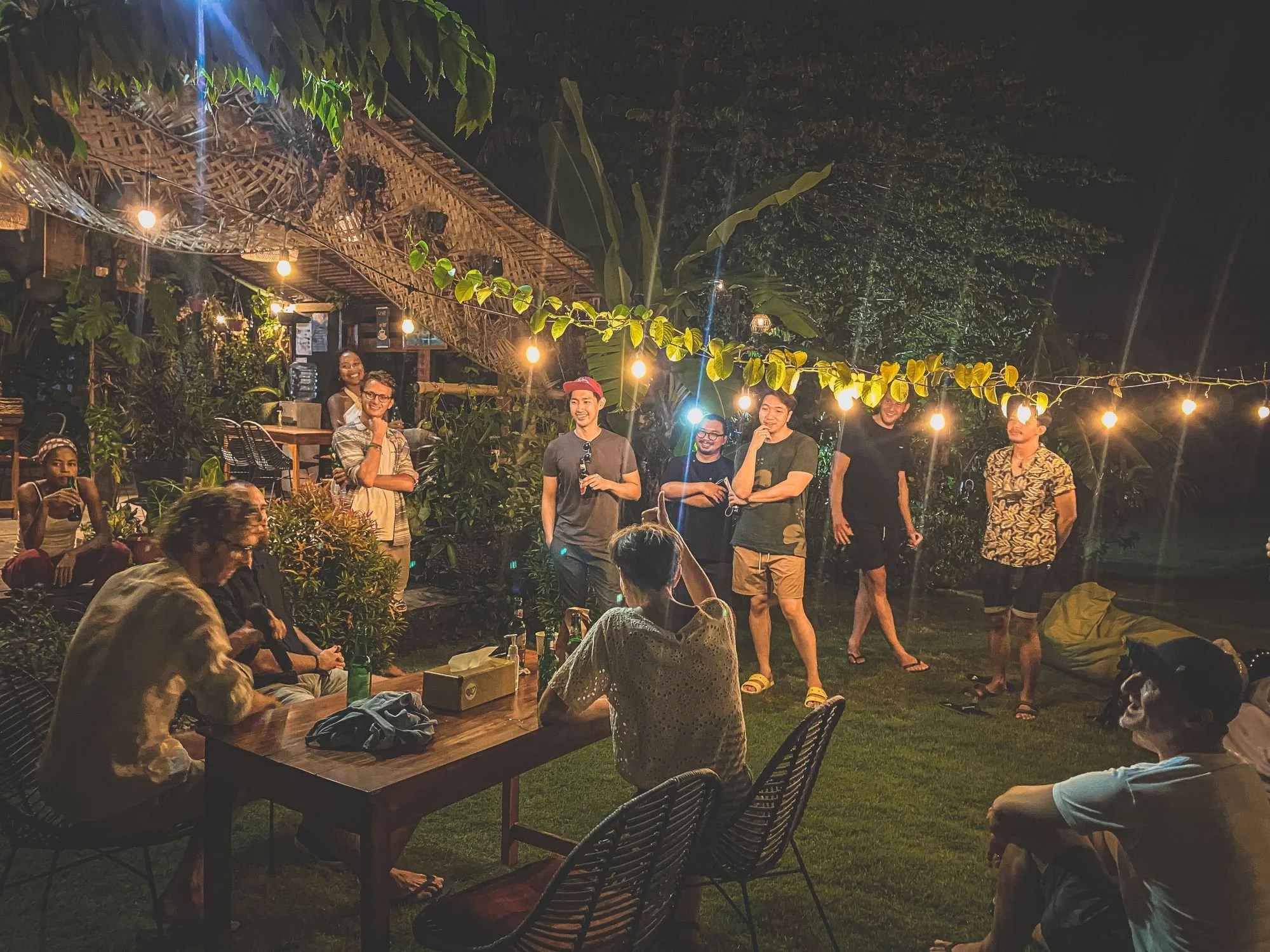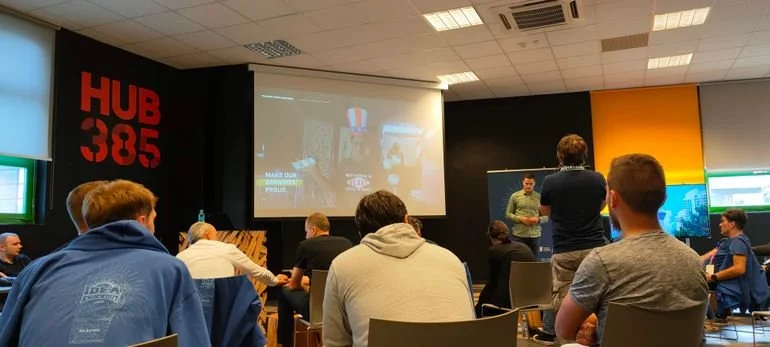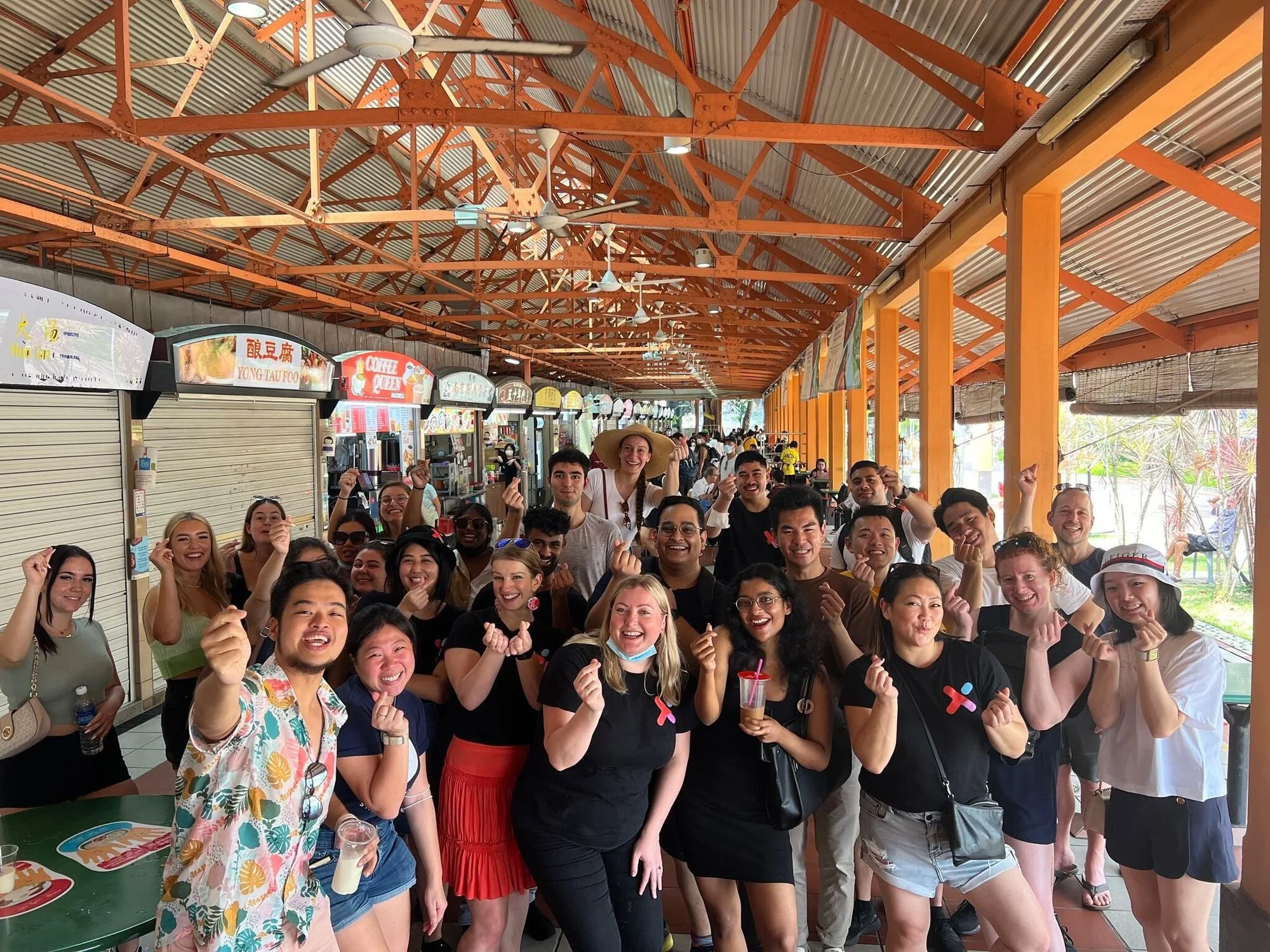Entrepreneur Tourism: An Introduction To A New Way of Travel
Wow! Entrepreneur Tourism — that’s a very sexy phrase. But what is it, really?
In 1820, a shophouse at the top of Ann Siang Hill housed the first clan association that was set up in Singapore by a Chinese immigrant in a bid to support his countrymen thrive and build their wealth by setting up businesses.
On an evergreen evening at this very shophouse in 2018, a hostel has taken over the space carrying a twist to the typical backpackers’ inn. Each evening, the owner of the hostel is seated near the door, with a glass of wine. Soon after, a close-knit circle gathers at the common area of this shophouse, albeit a narrow entrance.
You would hear conversations centering around ideas and entrepreneurship, exploring Singapore city and considerations to stay in this little country for a longer period of time as some of the topics flying across the room amongst excited travellers, remote workers, and digital nomads. These conversations and networking were actually happening over casual hangouts in a startup hostel that was launched to disrupt the travel industry by creating a new category of hospitality: entrepreneur tourism.
(The Flow Generation book launch presented by co-authors Vera and Nicola, Draper Startup House’s backyard, 2019) A dive into the gig economy and people with alternatives to day-jobs. Photo by Draper Startup House.
Through this unique model, the hostel caters to the demands of the next generation of business-inspired travellers. With an increasingly interconnected world and travel being accessible across a range of budget, backpacking has been a growing trend globally.
Before diving deeper — Have you ever wondered what similarities do backpackers and entrepreneurs share?
From observing the people in the room, there were three key traits. They are both:
Adventurous
Open-minded
Comfortable with getting out of their comfort zones
What is entrepreneur tourism?
Entrepreneur tourism is a subset of business travel and tourism. It is the global movement of business travellers towards countries, cities, ecosystems, due to favourable conditions for innovation, technological advancements, and economic activity in the region.
While digital nomads may not necessarily be travelling entrepreneurs, it is safe to assume that travelling entrepreneurs are a subset of digital nomads and remote workers.
Entrepreneur tourism services digital nomads, remote workers, and traveling entrepreneurs.
In 2018, digital nomads often sighted were software engineers, developers, virtual assistants, dropshipping solopreneurs, freelancers. But since the pandemic, remote workers have joined the global movement, regardless of their job function. Employees in tech giants such as Google get at least six weeks to work remotely from anywhere in the world.
Instead of focusing on physical provisions such as washing machines and breakfast, startup-friendly and digital nomad venues focus on addressing the day-to-day needs for the business traveller to adapt quickly and function optimally despite the change in their physical surroundings.
Such needs to be cared for include:
Interconnectivity — Strong and steady Wifi, presence of plugs
Access to conducive workspace to get sh*t done
Access to community and opportunities, such as getting connected with the local community through networking events
Safety and Infrastructure — How accessible is it to go from place to place?
Infusing a business element into the predominant backpacker culture in a startup hostel, entrepreneur tourism takes the shape and form of activities that fosters trust and camaraderie amongst entrepreneurs and open-minded individuals that find resonance within the community, thereby providing an intimate outlet for people to connect deeper.
(A Korean startup visiting Singapore takes the stage and pitch to investors at a private mixer and networking event, Draper Startup House 2022). Photo by Draper Startup House.
Entrepreneur tourism elevates the ordinary, taking the shape and form of
Startup crawls, instead of pub crawls with hostel acquaintances
Imagine visiting Google, Microsoft, and Meta’s/tech headquarters or several startups offices to pick brains of tech leaders, source inspiration from their culture that encourage learning and drive innovation and creativity
Networking events, instead of Happy Hours
As a way to meet locals and connect with business prospects, and potential clients
Learning evenings, instead of conventional book clubs that study texts
Such as thematic deep dives from business books and how their learnings can be applied globally and in one’s day-to-day
While sipping wine, taking the chance to learn about cybersecurity or data science or web 3 from an industry expert — which you might have never otherwise encountered in your day-to-day if you come from a specialised industry
(A networking evening in Bali gathering hostel guests, expats, locals, entrepreneurs, digital nomads, and travelling entrepreneurs at Draper Startup House Bali, 2022)
Where are entrepreneurs headed?
What countries are making it easier for them to build companies and teams (relocation, visas, funding, etc)?
Trailing with entrepreneurs and businesses that are headed to all parts of the world, they fearlessly traverse nomadically and take their business with them wherever they go. Being in a small towns has just as much charm as larger cities, but each serve a different purpose.
(Worth checking out: Nomadlist)
Small towns, suburbs, rural areas
Entrepreneurs are headed to small towns primarily for lifestyle choices: some suggest that it removes them from distractions of their surroundings and the bustle from city life, thereby enabling productivity, or provides a conducive environment empowering new ideas after recharging from regaining work-life balance and access to nature.
For example,
In Croatia, Split is a popular remote-work destination all year round because of its proximity to the sea, but also accessibility through various transport modes for founders to set out to meet investors. Similarly, Bali in Southeast Asia is a popular destination for founders who may have incorporated their businesses elsewhere (e.g. Singapore, Jakarta) but have flexibility to work remotely.
Vaszoly, a village that is a 10-minute drive from Balaton Lake, houses Hungary’s first co-live, co-work, and leisure space for digital nomads and remote works. The owner (Csaba Antal) refurbished a stable into apartments and also has a common area for work, meetings, and whiteboarding sessions to take place.
Cities
Sometimes entrepreneurs return to larger cities with various intentions, such as access to high quality talent, to engage with their community/clients/users/investors, to follow through with administrative matters, or actively raise capital from investors. Usually, this is tied to how robust the economic environment is. Government policy plays a huge role: with incentives, the economic activity creates a multiplier that shapes the ecosystem.
For example,
Singapore is an attractive country/island-state to launch a business. This is due to
Low taxes and efficient digitised processes, alongside being accessible globally.
With summer all year round, there is also minimal disruption to the work year as compared to the temperate countries (e.g. long summer breaks, etc.)
Accessibility to capital. Singapore makes a hotspot for fundraising because of the abundance of VCs (120+) and incubator/accelerator programs (200+) compared to its other Southeast Asian counterparts.
Ease of entering other Southeast Asian countries with Singapore accreditations.
With the metropolitan city being English-speaking and multi-ethnic, it is also expat-friendly and welcoming to foreigners.
Tallinn, Estonia’s capital, is attractive as a gateway for non-European businesses to enter the continent’s market. This is possible due to
Governance and institutional support having driven the country to be completely digital, hence speeding up application processes, and eliminates corruption that disrupts the process where bureaucratic paperwork still prevails in many other countries in Europe.
An array of visas to attract talent to the country: digital nomads and e-residency for business owners
The whole nation is digital-savvy and educated, alongside a strong startup community and culture
Leading Europe’s tech scene with highest unicorns and investments per capita (10 presently)
However, inefficiency (possibly due to corrupt governments and bureaucracy), inspires privatisation and equips founders with grit.
Zagreb, the capital city of Croatia
is still the core for economic activity across Croatia for business administrations — hence domestic travel to Zagreb is much-needed: whether to raise capital from investors, visit relevant authorities for paperwork to be submitted, connect with business partners who are likely headquartered in the city, or take on important business meetings. This is where all the VCs and investors are based, where most incubators are present, including access to education, resources, and startup support.
Although there is about a population of 4.7 million, there are only 4-5 venture capital firms to fund the startups there. Due to the long wait to receive investments or roadblocks from the bureaucracy (e.g. certification, documentation to be on print), some startups serendipitously find success by simply bootstrapping until they have substantially scaled without the support of funding
(Co-work office HUB385 hosting a startup demo day, Zagreb 2021). Photo by Draper Startup House.
How to get started on the entrepreneurial journey and globetrotting endeavours
A good by-product out of the pandemic is how it has enabled widespread acceptance towards remote working and for people to slow down and rethink alternatives to traditional career paths. COVID-19 has also accelerated edtech evolution, forcing traditional education institutions to adapt and keep up with technological advancements.
Programs to look at
Education programs inspiring international exposure and innovation
International MBA courses
Before the pandemic, this was the common route where working professionals, after gaining 3-5 years of experience in the industry, apply to prestigious programs that offer international curriculums (e.g. INSEAD’s 18-month MBA, stints of 6-month programs in 3 cities). However, this is costly (~100-200k commitment) and most likely requires one to focus full-time on academics due to its rigour.
New ed-tech alternatives
With innovation transforming education, disrupting the traditional models, edtech startups like HEX partner up with universities to offer a curriculum that caters better to the younger generation. Known to offer innovation education for the gap-year generation, HEX offers a unique opportunity to travel the world, immerse in a city, while learning the fundamentals to launch a business in two weeks. They have hosted cohorts in startup capitals like Tel Aviv, Singapore, Melbourne, and more.
(HEX international cohort in Singapore, 2022). Photo by Draper Startup House.
Global Incubator/Accelerator programs funding entrepreneurs to found their startup
Ever wanted to build a business, go abroad, and be paid to do so? It is possible! Programs by incubators (e.g. Entrepreneur First) and accelerators (e.g. Antler) — provide a stipend for one to pursue entrepreneurship and found a business within a fixed period
Scaling up a business and entering a new region. Other accelerator models offer entrepreneurs attractive support and guidance to expand beyond domestic markets and to enter the region; such as Accelerating Asia, a leading accelerator VC in Asia that invests in global startups that are seeking to expand across Asia.
Cross-border Government Initiatives
In a spur to encourage economic activity and strengthen political ties through trade and travel, institutional incentives present itself in various ways. For example, the Italian Trade Agency recently brought in cohorts of Italian startups into developed ecosystems such as Seoul and Singapore to explore opportunities to expand beyond local markets. Apart from that, Korean government has invested a substantial sum to stimulate Korean startups’ expansion beyond the country. In 2022, Draper Startup House alone has supported at least 3 such initiatives indirectly, hosting their delegates across various pitch events.
Ending Thoughts
I accidentally ended up in entrepreneur tourism as an avid observer in the startup ecosystem, but it has been an amazing learning journey thus far! Where the education system couldn’t meet my needs in satiating questions about the world, my answers from the entrepreneurial world came from crowd-sourcing. Travellers passing through and people who ended up settling in Singapore offered me perspective.
For the first time in life, it was empowering feeling dumb. While school was all about being smart and avoiding making mistakes, the startup ecosystem is ever-advancing and innovation is the norm. Being drenched in a community so rich in brains to pick leaves me walking away feeling dumb, but a good kind. By keeping the mind open and have it be exposed to as many different perspectives and thought processes by different key players of a startup, an ecosystem, its stakeholders, allows you to look at things in various dimensions beyond just one. It opens doors to new opportunities: anything from becoming a more effective communicator, an active listener, an empathetic ecosystem enabler, or a better storyteller.
I believe the future is here — we just experience it unevenly. Travelling beyond my comfort zone and venturing out into the world is a re-affirmation of that belief. When you go from developed nations into emerging markets, or even shuttle between different continents’ emerging markets, there are so many inferences and comparisons to make. What are the possible trajectories for an emerging market — which developed city could it evolve into, with ample support from institutions and various startup ecosystem players? There’s much to be done, and how do you begin? Should the top-down approach come first, or the ground-up approach before both reach middle grounds?
If you thought you’ve heard the most exciting advancements in your industry from the news, think again. Before a piece of information makes it to the media, it is countless trial and error and chaos. But that might be just where it is, in a startup house where someone shares their idea with someone else in the world, for the very first time ever. It’s humbling and grounding to learn how the odds challenge people to rise above and grow graciously, or empower them to play it to their favours at unexpected times… taking the world by surprise.
Author bio: Xia is a firm believer that the future is here (it's just unevenly distributed), and her business is to create. She is on a mission to broaden horizons with entrepreneur tourism while enabling one million startups. Advocating for women empowerment through solo travel, and an artist-at-large, Xia’s curiosity towards the world is fuelled by her joy from stepping into the discomfort zone to explore new territories and scaling greater heights.

